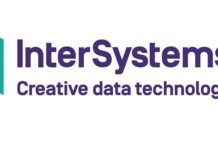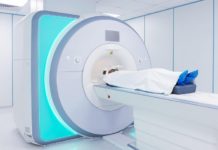As the only public hospital in the Seattle area, Harborview cares for nearly 300,000 inpatient, outpatient and emergency services visits annually. The hospital serves a large number of patients for whom English is not the primary language1 and who require translation services for accurate diagnosis and treatment. While the hospital maintains a staff of interpreters, each one can typically accompany a maximum of eight patient visits per day when doing so in-person. As a result, some routine appointments could be delayed due to interpreter availability, and drop-in patients could face a longer wait in a clinic than anticipated.
To improve the scheduling issues and enhance care for these patients, Harborview tried phone-based interpreting using a centralized staff of interpreters. While the solution was efficient, the voice-only service lacked the ability for the interpreter to see the patient and doctor and vice versa — an important visual component that's crucial during diagnosis and that helps build trust. The recent addition of the Avaya Video Telephony Solution with Polycom videoconferencing enables the hospital to triple the volume of patient visits a call center-based interpreter can manage daily with the quality of care and patient experience on which Harborview built its reputation.
"We had specific requirements for this to succeed" said Jeremy Wu, network engineer, University of Washington. "It had to be powerful, easy-to-use and practical. If the solution was too complex, doctors wouldn't use it. We needed high-quality audio and video that reduced strain or error and one that could integrate with existing technology."
The solution, managed for Harborview by the University of Washington, integrates the university's Avaya Communication Manager IP Telephony and Contact Center applications with Polycom video endpoints on agent desktops in the Interpretive Services call center and on mobile carts in a pilot clinic. The video and audio clarity allows interpreters to clearly see and hear patients, including the important subtleties in both verbal and non-verbal communication
Now, when a physician has a patient in need of interpretive services, the mobile cart with the video unit is sent to the examination room. A built-in directory offers a menu of available languages and the doctor simply uses the remote control to select the appropriate language to initiate the call. The video call is routed to the group of interpreters with that language skill, or if all are currently engaged with other patients, the video call goes into the queue and is delivered to the first available interpreter.
About Avaya Video Telephony Solutions
Desktop video — allows users to place a voice call with Avaya IP Softphone or Avaya one-X® Communicator and add video with the click of a button. Audio can be delivered to the PC or to the enterprise desk phone.
Conference room video — enables users to quickly launch a group voice and video call using a Polycom HDX or VSX series system.
Multipoint video — provides voice, video and unified (voice and video) conferencing for users in multiple locations by leveraging a Polycom RMX 2000 and MGC Multipoint Control unit.
NOTE: To view the Harborview Medical Center Interpretive Services video case study, visit: http://www.avaya.com/gcm/master-usa/en-us/casestudy/filter.htm&Filter=CollectionSearch:harborview
About Harborview Medical Center
About Avaya
Avaya delivers Intelligent Communications solutions that help companies transform their businesses to achieve marketplace advantage. More than 1 million businesses worldwide, including more than 90 percent of the FORTUNE 500®, use Avaya solutions for IP Telephony, Unified Communications, Contact Centers and Communications Enabled Business Processes. Avaya Global Services provides comprehensive service and support for companies, small to large. For more information visit the Avaya Web site: http://www.avaya.com
About Polycom
Polycom, Inc. is the global leader in telepresence, video, and voice solutions and a visionary in communications that empower people to connect and collaborate everywhere. Please visit:http://www.polycom.com for more information.
1According to 2007 U.S. Census study, 20 percent of Seattle's total population over 5 speaks a language other than English at home; and 9 percent reported speaking English "less than very well."
Contact:
Avaya
908-953-617
klined@avaya.com
Kevin Young
Polycom
720-596-4772
kyoung@polycom.com























